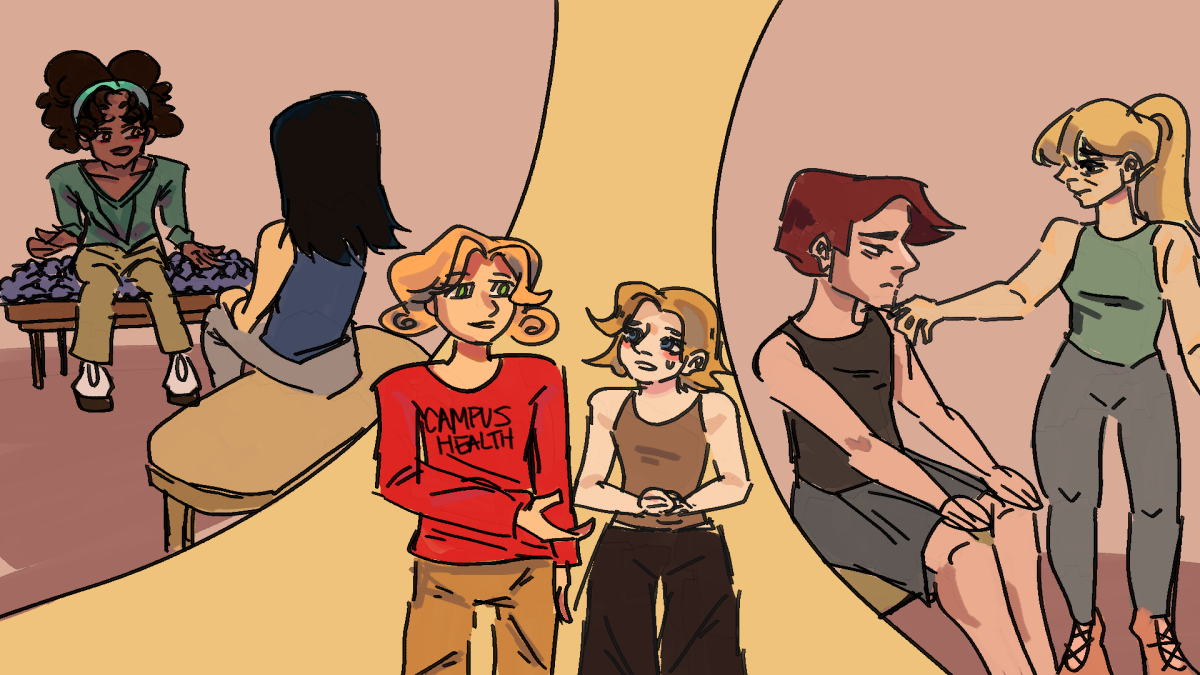Last year, NC State integrated embedded counselors across all of its colleges, meaning colleges have counseling staff dedicated to serving students in their respective programs. Today, embedded counselors continue to work to help promote student success.
The program aims to make counseling more accessible, especially for students who struggle to make appointments at the counseling center. To address this, embedded counselors are often on the same floor as a department, offering easy access for students within that college.
Laura Castro, director of counseling services at the College of Veterinary Medicine, said being a familiar face is part of the program’s success.
“They see our faces, they’re familiar with who we are, and we try to attend a lot of the programs so that they become comfortable approaching us,” Castro said.
Embedded counselors offer drop-in hours, allowing students to talk with a counselor without a formal appointment. Over the 2023-2024 school year, embedded counselors offered over 700 hours worth of drop-in spaces to students.
Jason Katte, the assistant director of embedded counseling, said embedded counselors’ skill sets differ from general counselors because they are present in their colleges.
“The uniqueness of the embedded counselors connect to the uniqueness of the school that they’re connected with,” Katte said. “So in addition to [standard clinical] services, an embedded counselor does a lot to reduce the stigma of mental health and wellness information by being more accessible. … The embedded counselor can work closely with the staff and faculty of the college to help them understand the best ways to address mental health concerns when they come up within their roles.”
NC State initially integrated embedded counselors into the College of Veterinary Medicine and the Athletics department, before expanding to all colleges last year. Since then, 581 students throughout NC State have attended appointments with embedded counselors.
Castro said each embedded counselor’s experiences vary between colleges.
“We each have our own culture,” Castro said. “So I’m aware of what’s going on in my college and what personality types are seeking services over here, and I’m aware of the needs specifically.”
Katte said mental health concerns don’t differ across colleges, but presentation varies based on college while student size remains inconsistent.
“If there’s tons of students versus just a small number, it can really go both ways,” Katte said. “Sometimes a small number of students can make you feel more comfortable reaching out, and sometimes it can go the opposite way. With [fewer] students, it feels like there’s a little bit more of a spotlight.”
Regardless of college size, embedded counselors are in limited supply, sometimes resulting in a single counselor assigned to multiple colleges. Katte said despite the population of students, embedded counselors work to serve as many students as possible.
“Once a clinician fills up a caseload, they’re not adding more students consistently,” Katte said. “But the outreach services, whether it be the presentations or the ‘Let’s Talk’ consultations, that allows them to stay connected to students. So it really is a juggling act between seeing students clinically and consistently, and giving them that safe space, but also connecting with as many students as we can.”
Since Katte began in October of 2023, the number of embedded counselors has grown from eight to 11. Katte said the program will add another three positions within the next year due to a rising demand and heavy workloads for counselors. This last year, current embedded counselors provided over 1220 outreach hours to students alongside their current caseloads.
Katte said he believes embedded counselors are a way to connect with students.
“After something like [COVID-19], where everyone was so isolated and alone, it seems like … one of the best answers towards connecting with students and helping them feel seen again, because that distance was so silencing, made a lot of folks feel more disconnected and in some situations, unable to communicate in the way that they previously did,” Katte said.
Castro said she believes embedded counseling will continue to grow.
“I think that more individualized and tailored services to specific communities is a really successful way to get needs met for students and help them get more out of their counseling services,” Castro said.
Students can access embedded counseling through the Embedded Counselors page of the NC State Counseling website.













